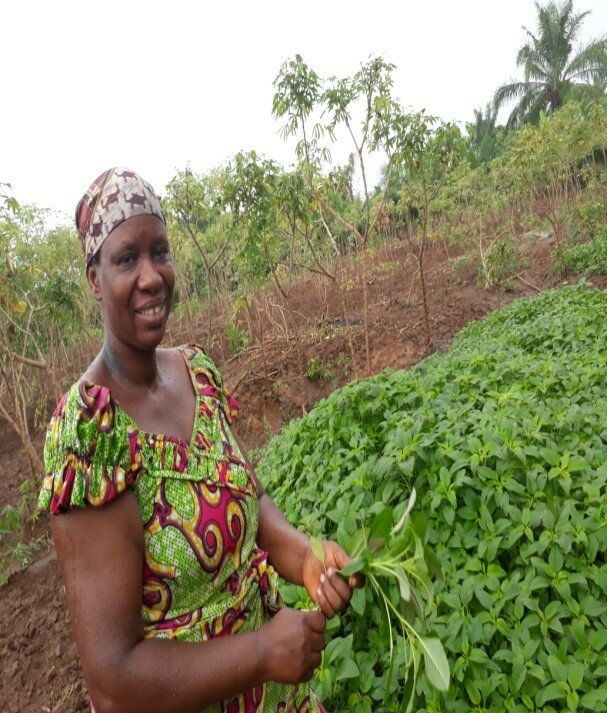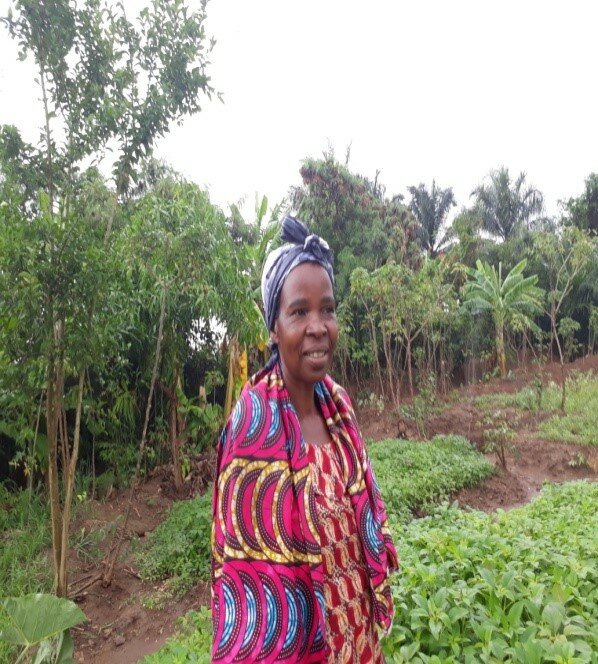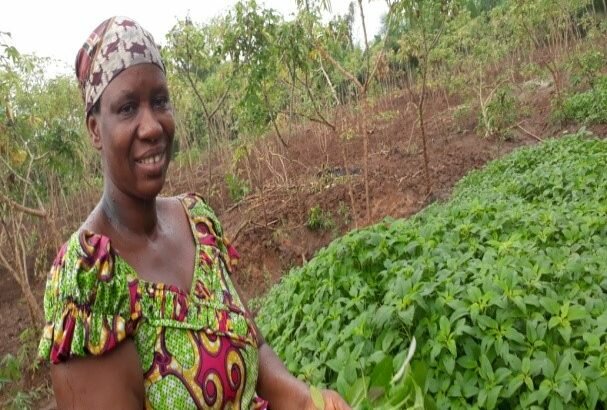
BUJUMBURA October 29th (ABP) – I am proud of the success achieved thanks to growing amaranths, vegetables commonly called “Irengarenga”, says Ms. Bernitte Nahimana.
“When I got married, I thought that my husband, who spent a lot of time on religious activities, needed my input. I then continued to practice with determination and dedication that agriculture that I mastered on land that a charitable man lent us. “Thanks to God’s blessings, activity has flourished. We moved from the outskirts of the city to a beautiful house we built in a residential neighborhood. We bought some plots and trading places at the market that can serve as sources of income. “This is one of the alternatives when the family will no longer be able to practice agriculture because of lack of land. The land on which she practices agriculture is currently being serviced for the construction of houses. The Rundi proverb says: “Umuntu inkoni yishimikiza ashaje ayica akiri muto”, to mean that we should prepare for retirement when we are still young.The last child of the family, Bernitte was not allowed to study like her brothers. She attended the “Yaga Mukama” informal school to devote enough time to housework and farming. “Since I was young, I specialized in agriculture, especially the cultivation of amaranths on the shores of Lake Tanganyika,” she says. It’s a very profitable business in a short time. Harvesting of amaranths occurs three to four weeks after sowing, unlike cassava harvested a year later, beans (2-3 months) or maize (3-4 months).
Ms. Nahimana admits that when she was growing amaranths for food self-sufficiency, she did not know she would get to that stage. In addition to the amaranths, she also grows other food crops such as cassava, sweet potatoes, banana, eggplant and oil palm so much that she only buys rice and fish for daily food. This allows her to save large amounts every month.
“Our self-sacrifice has also strengthened our love and mutual respect at home. No family member complains about working alone. Everyone contributes to family income. We have a few employees working in the fields but my husband and my kids give their help every day. ”
Ms. Nahimana has always avoided problems that can arise during the work. She built several wells for water retention to irrigate the fields during the dry season. During the harvest of the amaranths, customers usually take it on credit to pay after resale. Sometimes they do not pay on time. The market places made it possible for Ms. Nahimana to solve such problems. She sells herself at the market the amaranths she harvests.
Ms. Nahimana also contracts loans for projects that require significant funding. The Cooperative Savings and Mutual Credit Fund (CECM) granted her successively two loans of three million and two million Burundian francs which she easily paid back with the money from the sale of amaranths. Unfortunately when she applied for credit for the third time in that microfinance, she could not get it on the pretext that the markets are being rehabilitated. She criticized the attitude of the banks and micro finance which refuse to grant loans to farmers. “I am forced to lie that I will repay the loans with trade revenues while they come from agricultural activities.” To get a loan these days, she resorts to “Dushirehamwe” savings and loan group and of which she is a member.
Ms. Nahimana advises other women to choose an activity to get out of poverty that affects them more than men. When they see me, some women ask me if I continue to wade through the mud while I no longer live on the outskirts of the city. She says that success is guaranteed when you consistently run an activity you love.
I told myself that I could follow her example and develop myself too. I decided to do farming to increase family income. Income from agriculture is far above my salary. My main office is here in my fields. I harvest twice a week. I harvested on Monday and sold amaranths for 70 000 BIF. On Friday, I will also sell for 70,000 BIF, Ms. Gakiza told the check by ABP.Teacher Pascasie Gakiza learned something from Ms. Nahimana. I saw her doing very profitable farming. She sows the amaranths twice a week (Tuesday and Friday). She harvests and sells every week. “I saw how Ms. Nahimana was developing, how she built a villa, how she pays for her children’s studies to university while she is a farmer. Her family is well fed. I have seen how she receives bank loans and is able to pay them back when she is a farmer while we, as public servants, get almost nothing when we take loans.
“I hate laziness. At 5:00 am, I am standing every day to supervise agricultural activities in the fields. I hasten to reach Ms. Nahimana’s step, to have a villa like hers. I return to my job as a teacher at 1:00 pm,” she says. She states that Ms. Nahimana lent her a plot to grow cassava which is harvested at the end of a year. Afterwards, she gave her a plot for the cultivation of amaranths, an activity that allows her to harvest every week and to have money. To increase income, I rent plots each year for agriculture for about 500 000 BIF.
Ms. Gakiza is also proud of the development she has achieved. “I made savings. I built three houses that are under rent. I pay the school fees of my three children attending university including two in private universities. There are always food supplies at home”. She says that with her monthly salary as a teacher, she could not meet all the family needs (food, clothes, and medical expenses).






